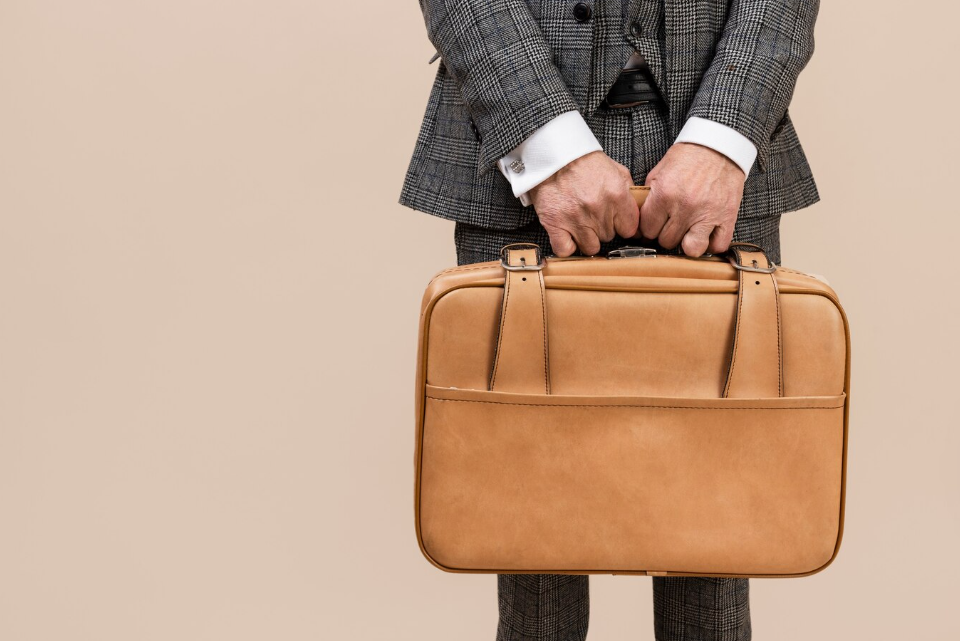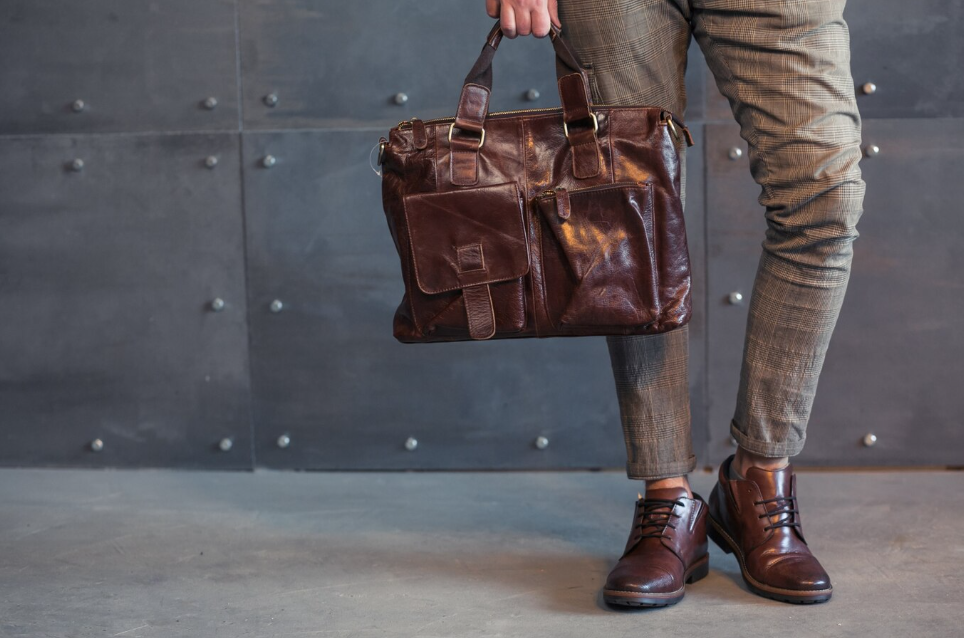In the world of fashion, certain accessories transcend trends and stand as timeless symbols of sophistication. Wholesale leather bags undoubtedly belong to this elite category. Crafted with precision and boasting an aura of enduring elegance, these bags have become synonymous with style, luxury, and versatility.
Section1. The Art of Craftsmanship: Elevating Wholesale Goods to Masterpieces
Craftsmanship, a timeless practice that marries skill, precision, and passion, has found a profound resonance in the realm of wholesale goods. Beyond the realms of mass production, the intricate details and skilled hands involved in crafting wholesale items transform them into true works of art. In this exploration of “The Art of Craftsmanship,” we delve deeper into the nuances that distinguish wholesale products, celebrating the profound impact of this age-old art on the world of commerce.
Precision and Attention to Detail:Craftsmanship in wholesale items is a testament to precision and attention to detail. Each stitch, each cut, and every finishing touch is executed with meticulous care. The artisans behind wholesale products ensure that their creations stand out, not just as functional items, but as embodiments of meticulous craftsmanship.
Artistry in Material Selection:Beyond technique, craftsmanship extends to the careful selection of materials. Wholesale artisans often choose premium materials that elevate the aesthetic appeal of their creations. Whether it’s the soft touch of luxurious fabrics, the supple feel of exquisite leathers, or a commitment to sustainable and eco-friendly materials, the artistry in material selection defines the character of wholesale goods.
Unique and Customized Creations:The beauty of craftsmanship lies in its ability to create unique and customized wholesale products. Artisans respond to market trends while infusing their creations with a touch of individuality. Retailers and consumers alike are drawn to wholesale items that break free from the standard mold, offering a distinctive and personalized touch that sets them apart.
Sustainability and Ethical Practices:In an era where ethical practices and sustainability matter, craftsmanship in wholesale goods often aligns with these values. Artisans who take pride in their work are more likely to source materials responsibly, embrace eco-friendly production processes, and adhere to ethical labor practices. The result is not just a product; it’s a conscious choice that resonates with consumers seeking authenticity and responsible consumption.
Building a Legacy:Craftsmanship is not merely a skill; it’s a legacy passed down through generations. Wholesale items crafted with dedication and expertise become a part of this legacy. They carry forward a story of tradition, a commitment to quality, and a timeless aesthetic. Choosing wholesale products crafted with such care is an investment not only in a tangible item but also in a legacy that endures.

Section2. Versatility Redefined: The Adaptive Charm of Wholesale Goods
In the dynamic landscape of retail, the term “versatility” takes on new meaning when applied to wholesale goods. Beyond the conventional understanding of adaptability, the versatility of wholesale items represents a canvas upon which creativity, functionality, and consumer needs converge. Let’s delve into how this quality is not merely a characteristic but a defining feature that sets wholesale goods apart.
Adapting to Varied Styles:The hallmark of versatile wholesale goods lies in their ability to seamlessly adapt to diverse styles. Whether it’s the classic elegance of a leather handbag or the casual chic of a canvas tote, wholesale items cater to a spectrum of fashion preferences. This adaptability allows retailers to curate a collection that resonates with a broad audience, transcending the limitations of a singular style.
Transitioning Across Occasions:Wholesale goods showcase their versatility by effortlessly transitioning across occasions. A carefully crafted leather accessory can complement a professional ensemble during the day and seamlessly transition to an evening event. This adaptability ensures that consumers can invest in items that serve multiple purposes, adding value to their wardrobe and enhancing the practicality of their purchases.
Mixing and Matching:The beauty of versatile wholesale items lies in their compatibility with a myriad of wardrobe choices. Whether it’s pairing a classic handbag with everyday jeans or accessorizing a formal outfit with a versatile scarf, wholesale goods provide consumers with the freedom to mix and match. This flexibility encourages creativity in styling, empowering individuals to express their unique fashion sensibilities.
Bridging Seasons with Ease:Wholesale items that redefine versatility effortlessly bridge the gap between seasons. From lightweight scarves that add flair in spring to durable leather accessories that withstand the chill of winter, these items seamlessly integrate into the ebb and flow of fashion seasons. This adaptability ensures that wholesale goods remain relevant throughout the year, catering to ever-changing consumer preferences.
Meeting Evolving Consumer Needs:The adaptability of wholesale items extends beyond aesthetics; it addresses evolving consumer needs. As lifestyles shift and priorities change, versatile wholesale goods evolve to accommodate new demands. This responsiveness ensures that retailers can consistently offer products that align with the current needs and preferences of their target audience.

Section3. Durability Beyond Compare: The Enduring Strength of Wholesale Goods
In the ever-evolving world of retail, the term “durability” stands as a testament to the resilience and longevity of wholesale goods. Beyond the transient trends, durable wholesale items emerge as steadfast companions that withstand the test of time. Let’s explore how this quality goes beyond mere longevity, becoming a hallmark of reliability and value in the realm of retail.
Built to Last:Durability in wholesale goods signifies more than just longevity; it speaks to a commitment to craftsmanship and quality. Items that are built to last undergo stringent manufacturing processes, ensuring that every stitch, seam, and component contributes to their robustness. This commitment to durability transforms wholesale goods into investments rather than mere purchases.
Resistance to Wear and Tear:The enduring strength of wholesale goods lies in their resistance to wear and tear. Whether it’s a sturdy leather handbag or a well-constructed backpack, these items are designed to withstand the rigors of daily use. The careful selection of materials and meticulous craftsmanship contribute to their ability to maintain their integrity, even in the face of constant use.
Aging Gracefully:Durable wholesale items don’t just withstand the passage of time; they age gracefully. The patina that develops on a leather accessory or the subtle fading of a well-loved fabric scarf tells a story of experiences and journeys. This natural aging process enhances the character of the item, adding a unique charm that resonates with consumers seeking authenticity.
Reliability in Various Conditions:Wholesale goods that prioritize durability exhibit reliability in various conditions. Whether it’s enduring the elements during daily commutes or standing up to the demands of travel, these items consistently perform. Their ability to maintain functionality and aesthetics across diverse environments contributes to their appeal as dependable accessories.
Sustainable Consumption:Durability in wholesale goods aligns with the principles of sustainable consumption. Items that withstand the test of time reduce the need for frequent replacements, minimizing the environmental impact associated with disposable fashion. This emphasis on durability encourages consumers to make conscious choices, investing in products that contribute to a more sustainable and responsible approach to fashion.
Dropshipping Pros and Cons:
Pros:
- Low Risk: Eliminates the need to purchase inventory upfront, reducing operational risks, making it ideal for startups or individual entrepreneurs.
- Low Start-up Costs: Requires minimal capital investment compared to traditional retail models, as there’s no need to buy and store inventory.
- Convenience: Streamlines the process by removing the complexities of inventory management, packaging, and shipping, allowing a focus on sales and marketing.
- Product Diversity: Enables easy testing of various products, facilitating adjustments in business strategies based on market feedback.
Cons:
- Low Profit Margins: Due to profit-sharing with suppliers, profit margins are often lower, making it challenging to achieve high profits in competitive markets.
- Limited Control: Limited control over aspects such as product quality, inventory, and shipping, heavily relying on supplier performance.
- Intense Competition: Dropshipping models are easily replicable, leading to a highly competitive market where differentiation can be challenging.
Wholesale Pros and Cons:
Pros:
- High Profit Margins: Bulk purchasing lowers unit costs, providing a higher profit margin potential for retailers.
- Greater Control: Better control over product quality, inventory management, and the supply chain.
- Brand Building: Establishing and promoting one’s brand to enhance visibility and reputation.
- More Customization Options: The ability to offer customized products to meet specific market demands.
Cons:
- High Start-up Costs: Requires significant upfront capital for inventory purchase, posing financial challenges.
- Inventory Risks: The risk of overstocking or slow-moving inventory leading to financial losses.
- Logistics Management: Handling packaging, storage, and shipping increases operational complexity.
Customization Pros and Cons:
Pros:
- Differentiation in Competition: Customized products create unique selling points, differentiating a brand in a competitive market.
- Meeting Specific Needs: Better meeting the specific needs of certain customer segments, enhancing overall satisfaction.
- Brand Building: Enhancing brand image through the provision of unique and tailored products.
Cons:
- Longer Production Cycles: Customized products often have longer production cycles, resulting in extended delivery times.
- High Costs: Customization usually involves higher production costs, impacting profit margins.
- Market Uncertainty: Demand for customized products can be relatively unpredictable, requiring a keen understanding of market dynamics.







